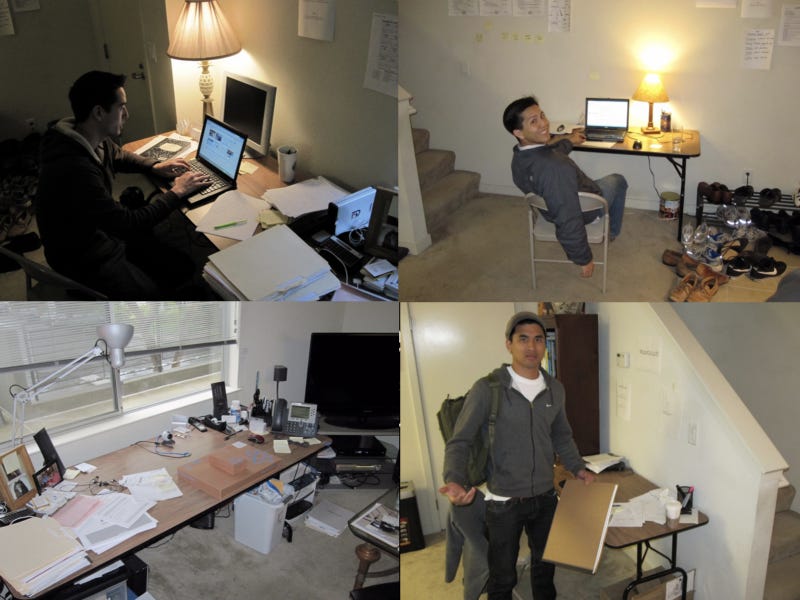Startup vs. Big Tech: Why the Grass Isn’t Always Greener
Back in 2009 when I launched my last startup Triangulate, I wanted to change the world by helping people meet the right person with whom…
Back in 2009 when I launched my last startup Triangulate, I aimed to change the world by helping people meet the right person with whom to spend the rest of their lives.
My team and I were building a new online dating site on the premise that actions speak louder than words. Rather than ask people to create a long written profile, we would ask users to voluntarily connect us to a few of their online services like Netflix, Facebook, Foursquare, and others. We would combine this opt-in behavioral data with our machine learning algorithms to deliver more accurate romantic matches.
Against this lofty vision, I often suffered from envy. Our office was my apartment living room where my four teammates and I sat on steel folding chairs and worked without salary for a year. As CEO, I also served as office manager, HR department, housekeeping, etc.
Matt, David, and Jason at Triangulate HQ aka my living room, circa 2009
I would often think, “if only I had the resources of a larger dating site like Match.com, this would be so much easier.” I dreamt of beautiful offices with dozens or even hundreds of engineers waiting to write code. I thought of having an assistant, catering, and a large marketing department. I couldn’t shake this feeling that large companies must have it so easy.
I would often think, “if only I had the resources of a larger dating site like Match.com, this would be so much easier.”
Regardless of the source, this thinking was wrong. Big companies have it hard. Startups also have it hard. All too often, each falsely believes that the grass is greener on the other side.
At the seed startup stage, the struggles you face on a daily basis include ensuring you can buy food and pay your rent. You’re building your product, working to land your first customer, and determining what advice is or isn’t useful — and you’re doing it all with very little capital and team. A seed startup might look at a big company like Google and think they have it made.
But running a big company comes with its own set of challenges. When you have thousands of employees and billions in revenue, how do avoid complacency and keep the team hungry? How do you attract and retain top engineers to work on legacy products that utilize outdated technology stacks but are the lifeblood of large companies? How do you ensure that you “catch the next wave” so your company isn’t obsolete in a few years? To a big company, a startup’s freedom and ability to make changes on the fly seems incredibly appealing.
Both sides have pros and cons: as a seed startup, you’ll find yourself metaphorically dancing on a tightrope without a safety net, and it will feel like the time of your life. As a big company, you’ll be able to use the plethora of resources at your disposal to roll out product to millions of users and accomplish goals. It’s like comparing a 2-person dinghy sailboat to a massive 3,000-person cruise ship: one isn’t better than the other, but if you’re honest with yourself it should be obvious which is more well-suited to your personality.
So my advice for myself back in 2009 and for you today: stop looking with envy at other companies that are larger or smaller than your own, and embrace your chosen struggles.
Are you a founder of a seed-stage startup who is currently struggling in the smart hardware or machine learning sectors? Let’s talk! Leave a comment or get in touch with Ubiquity Ventures.
Ubiquity Ventures — led by Sunil Nagaraj — is a seed-stage venture capital firm focusing on early-stage investments in software beyond the screen, primarily smart hardware and machine intelligence applications.


